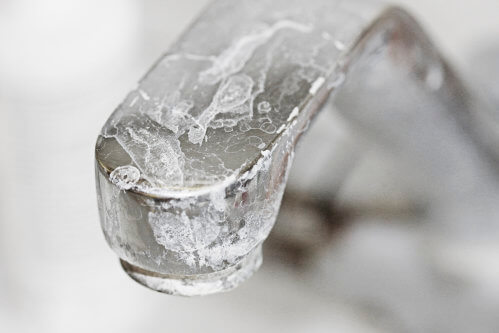
Understanding and Dealing With Hardness in Well Water
Hard water is a common issue that many households on well water and city water face, often without even realizing it. While it poses no direct health risks, it can create a host of inconveniences that impact daily life. From unsightly spots on dishes to laundry that feels rough to the touch, this can be a persistent nuisance. In this blog post, we’ll delve into what it is, how it affects your home, and what you can do to tackle the problem effectively.
What Is Hard Water?
Hardness occurs when water absorbs minerals—primarily calcium and magnesium—from rocks and soil as it travels through the environment. These minerals are beneficial in many ways but can cause problems when they accumulate in your home’s plumbing system.
Water hardness is measured in grains per gallon (gpg). Here’s a quick breakdown of the limits:
- 0–3 gpg: Soft limit
- 3.5–7 gpg: Moderate limit
- >7.5 gpg: Hard limit
When water is classified as hard, it can lead to several complications in your household, including reduced efficiency of appliances, limescale buildup in pipes, and a general decrease in the effectiveness of soaps and detergents.
The Effects of Hard Water
1. Appliance Efficiency
One of the most significant impacts is on household appliances that use water, such as dishwashers, washing machines, and water heaters. Over time, limescale—a chalky buildup—can accumulate inside these appliances, leading to decreased efficiency and ultimately, a shorter lifespan. A water heater, for instance, may require more energy to heat water effectively, which can result in higher utility bills.
2. Laundry Issues
Do your clothes feel rough after washing? The calcium and magnesium minerals can prevent detergents from lathering properly, leading to residue on fabrics that can leave them feeling stiff. In some cases, whites may appear dingy rather than bright, which is another frustrating side effect.
3. Spotty Dishes
If you notice that your dishes come out of the dishwasher with hazy white spots, hard water is likely the culprit. The minerals in hard water can leave behind residue that dulls the shine of your glassware and flatware. Not only is this unappealing, but it can also require extra effort to clean your dishes effectively.
4. Plumbing Problems
Hard water can contribute to limescale and calcium buildup in pipes, which reduces water flow and pressure. Over time, this can lead to more severe plumbing issues that may require costly repairs. Regular maintenance can mitigate these risks, but dealing with hard water proactively is always the best course of action.
How to Identify Hard Water
Recognizing the signs of hard water can save you from dealing with bigger issues down the line. Some common indicators include:
- White or chalky deposits on faucets and fixtures
- Unpleasant film on glassware after washing
- Stiff or discolored laundry
- Reduced pressure from faucets and showerheads
For a more precise measurement, you can contact American Aqua and have a free water test done. These tests measure hardness in grains per gallon (GPG) or parts per million (PPM). If your water tests at or above 7 GPG or 120 PPM, it’s officially classified as hard.
Solutions for Hard Water
1. Water Softeners
The most effective solution for hard water is to install a water softener. These devices use ion exchange to replace hard minerals with sodium ions, effectively reducing the hardness of the water that enters your home. This can significantly improve the performance of your appliances and reduce limescale buildup in your plumbing.
2. Descaling Agents
If installing a water softener isn’t feasible, consider using descaling agents in appliances prone to limescale buildup. These products can help dissolve existing mineral deposits, improving efficiency and performance.
3. Regular Maintenance
Regardless of whether you invest in a water softener or not, regular maintenance of your plumbing and appliances is crucial. This includes descaling your water heater and dishwasher periodically to keep them running smoothly.
4. Use of Specialized Products
There are various soaps and detergents formulated specifically for hard water conditions. These products can help enhance cleaning effectiveness and minimize the issues caused by mineral buildup.
Conclusion
While hard water may not pose immediate health risks, its effects can disrupt everyday life and lead to costly repairs if not addressed. By understanding what hard water is and how it affects your home, you can take proactive steps to mitigate its impact. Whether through the installation of a water softener or regular maintenance of your appliances, dealing with hard water can lead to a more comfortable and efficient home environment.
If you suspect that hard water is an issue in your household, don’t wait until the problems escalate. Call American Aqua to test your water, identify the hardness level, and explore the best solutions for your specific situation. Your appliances, laundry, and even your dishes will thank you!